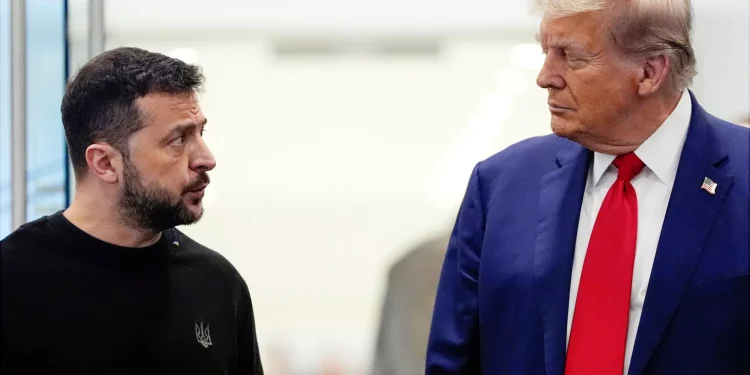Introduction
The intersection of American politics and international diplomacy has often been a volatile space, and few episodes exemplify this more clearly than the saga encapsulated in the phrase Donald Trump Ukraine. This phrase has become symbolic of a series of political decisions, controversies, and investigations that not only rocked the Trump administration but also had reverberations across global politics. From impeachment trials to diplomatic strain and public opinion warfare, the Trump-Ukraine narrative is an emblem of how 21st-century politics blends domestic ambitions with international strategies.
This article delves into the multifaceted implications of the Donald Trump Ukraine controversy, exploring its timeline, the impeachment proceedings it triggered, Ukraine’s precarious geopolitical position, and the ongoing ramifications in the American political arena and beyond.
The Background: U.S.-Ukraine Relations Before Trump
Before examining Trump’s involvement, it’s crucial to understand the historical context of U.S.-Ukraine relations. Since Ukraine’s independence in 1991 following the collapse of the Soviet Union, the United States has played a significant role in supporting Ukraine’s sovereignty and democratic development. Ukraine has long been seen as a strategic partner in countering Russian aggression and fostering democratic values in Eastern Europe.
U.S. administrations prior to Trump maintained bipartisan support for Ukraine, offering military aid, economic assistance, and diplomatic backing, particularly after Russia’s annexation of Crimea in 2014.
The Trump Presidency and the Ukraine Policy Shift
When Donald Trump took office in January 2017, there was cautious optimism in Kyiv regarding continued U.S. support. However, Trump’s foreign policy, characterized by unpredictability and a penchant for personal diplomacy, soon began to complicate the relationship.
Initially, the Trump administration approved the sale of Javelin anti-tank missiles to Ukraine—an action President Obama had avoided. While this seemed like a step forward, the goodwill began to unravel in 2019 with the emergence of a brewing scandal that would dominate headlines for months.
The Infamous Phone Call and Its Aftermath
The scandal that would eventually be referred to simply as Donald Trump Ukraine began with a phone call on July 25, 2019. During this conversation, President Trump spoke with Ukrainian President Volodymyr Zelensky. According to a whistleblower complaint and a subsequently released memo of the call, Trump asked Zelensky to investigate Joe Biden and his son, Hunter Biden, who had business dealings in Ukraine.
At the time, Joe Biden was seen as Trump’s most formidable opponent in the upcoming 2020 presidential election. The implication was that Trump was leveraging his position as president to solicit foreign interference in a U.S. election—an allegation that immediately sparked outrage and deepened political divides.
Critically, Trump had also paused nearly $400 million in military aid to Ukraine shortly before the call, raising accusations of a quid pro quo arrangement: military assistance in exchange for politically motivated investigations.
Donald Trump Ukraine Scandal Leads to Impeachment
The First Impeachment
The fallout from the Donald Trump Ukraine phone call led to the launch of a formal impeachment inquiry by House Speaker Nancy Pelosi on September 24, 2019. The House of Representatives swiftly moved forward with the investigation, which included explosive testimony from key officials such as Ambassador Bill Taylor, Lt. Col. Alexander Vindman, and former National Security Council staff.
On December 18, 2019, Donald Trump became the third president in U.S. history to be impeached. He was charged with:
-
Abuse of Power – for allegedly soliciting foreign interference in the 2020 election.
-
Obstruction of Congress – for refusing to cooperate with the impeachment inquiry.
However, the Republican-controlled Senate acquitted Trump on both charges on February 5, 2020, bringing an end to the legal proceedings but not to the political and public discourse surrounding them.
The Ukrainian Perspective
While much of the attention centered on Trump’s actions and their legality, the situation placed Ukraine in a highly precarious position. President Zelensky, still relatively new in office, faced an unenviable balancing act: maintaining a working relationship with the United States while navigating accusations of being pulled into American political machinations.
Ukraine, engaged in a simmering conflict with Russia in the Donbas region, relied heavily on U.S. military and economic aid. The temporary withholding of this aid created uncertainty and fear, which was compounded by the global media frenzy that followed.
Zelensky and other Ukrainian officials maintained that there was no pressure from Trump, but many observers saw these statements as an attempt to avoid further entanglement in American domestic politics.
Broader Global and Domestic Implications
Impacts on U.S. Foreign Policy
The Donald Trump Ukraine episode has had lasting implications for U.S. foreign policy. It raised questions about the integrity of American diplomacy, the role of personal interests in shaping national security decisions, and the vulnerability of U.S. foreign policy to political manipulation.
Foreign leaders began to wonder whether they could rely on the United States as a stable partner, especially when bilateral relations became entangled with domestic political battles.
Effects on American Democracy
Domestically, the scandal intensified partisan divisions in the United States. Trump supporters saw the impeachment as a politically motivated witch hunt, while critics viewed it as a necessary stand against presidential overreach.
The case also spotlighted the importance of whistleblower protections, the role of Congressional oversight, and the need for clear boundaries between political campaigns and government resources.
Donald Trump Ukraine: Legacy and Continuing Relevance
Resurfacing in 2024 and Beyond
Even after his acquittal, the Donald Trump Ukraine controversy continued to shape the political landscape. During the 2024 election cycle and in post-presidency legal battles, Trump’s actions in the Ukraine saga were frequently referenced as emblematic of his leadership style—one that blends assertiveness with controversy.
The narrative also resurfaced in media discussions of U.S.-Ukraine relations, especially following the Russian invasion of Ukraine in 2022. Critics pointed to Trump’s earlier actions as potentially undermining the international credibility of the U.S. support for Ukraine at a time of dire need.
Influence on Future Political Norms
The events surrounding Donald Trump Ukraine have influenced how future presidents approach foreign policy and how Congress exercises oversight. There is now increased scrutiny of presidential interactions with foreign leaders, especially those that are not transparently documented.
It has also reignited discussions around the Emoluments Clause, executive privilege, and the checks and balances enshrined in the U.S. Constitution.
Media’s Role in Shaping the Narrative
The role of the media in shaping the Donald Trump Ukraine story cannot be overstated. News outlets, social media platforms, and partisan broadcasters presented vastly different narratives, contributing to the political polarization.
Some outlets framed Trump’s actions as criminal abuse of power, while others depicted them as a justified push against corruption in Ukraine. This divergence in coverage highlighted the evolving media landscape and the challenge of ensuring informed public discourse in a time of misinformation and echo chambers.
Lessons Learned
From a historical and governance perspective, several lessons emerged from the Donald Trump Ukraine scandal:
-
Transparency Matters: Secretive dealings and informal diplomatic channels can lead to significant legal and ethical concerns.
-
Checks and Balances Are Crucial: The Congressional impeachment inquiry underscored the importance of maintaining oversight over executive actions.
-
Foreign Policy Should Not Be Politicized: Leveraging foreign relationships for political gain sets a dangerous precedent and can erode global trust.
Conclusion
The Donald Trump Ukraine affair is a defining moment in modern American political history, encapsulating the complexities of executive power, international diplomacy, and electoral integrity. It was not just a story of a phone call or a scandal—it was a lens into how power can be wielded, challenged, and scrutinized on the global stage.
As the United States continues to navigate a shifting geopolitical order and internal political divisions, the lessons of this episode remain as relevant as ever. Whether seen as a cautionary tale or a moment of political theater, the saga stands as a critical case study in democratic accountability and the enduring consequences of presidential actions.
In the end, the Donald Trump Ukraine story reminds us that the actions of world leaders have ripple effects far beyond their borders—shaping not only the course of nations but also the future of democracy itself.













